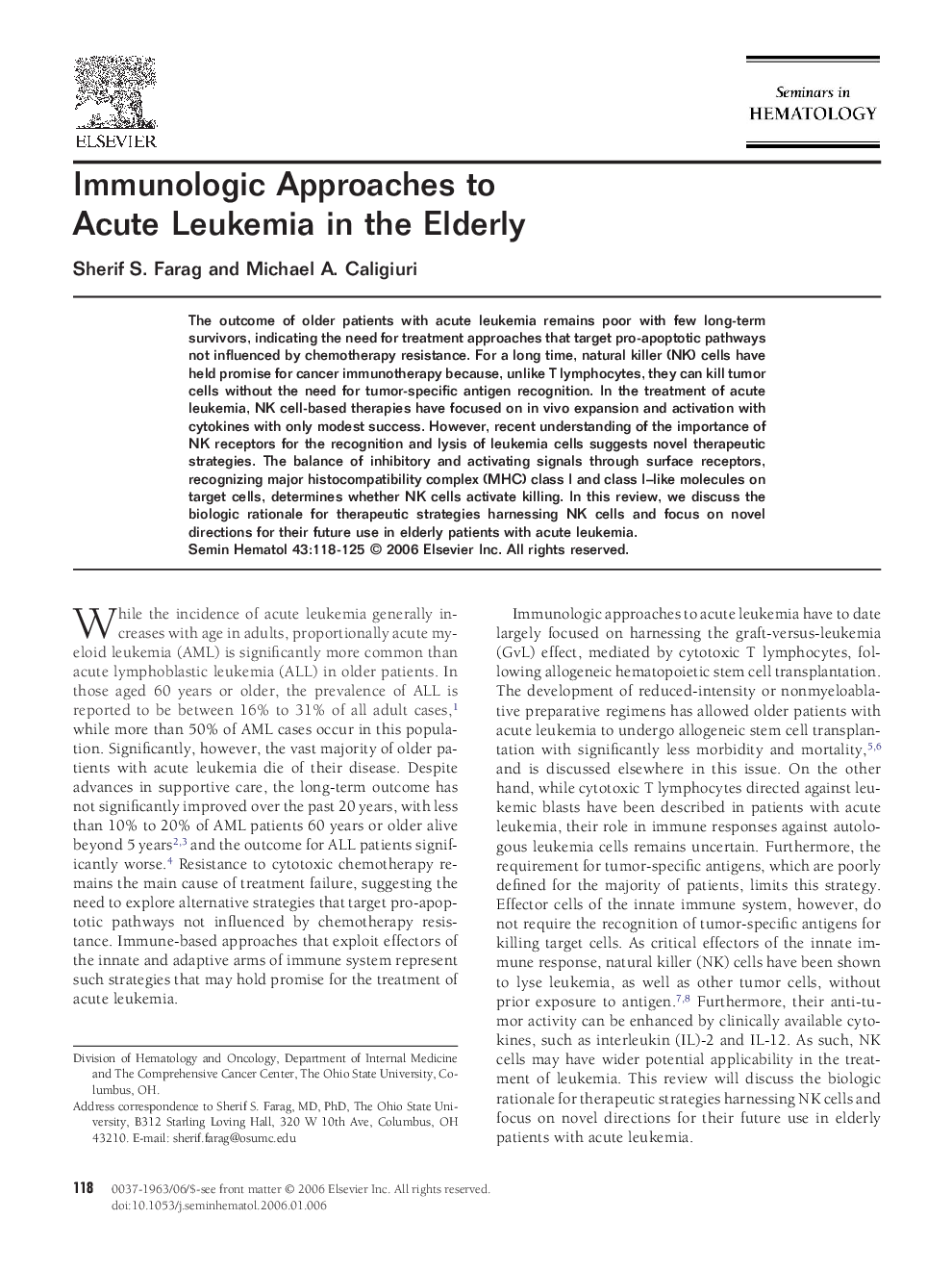| Article ID | Journal | Published Year | Pages | File Type |
|---|---|---|---|---|
| 3334143 | Seminars in Hematology | 2006 | 8 Pages |
The outcome of older patients with acute leukemia remains poor with few long-term survivors, indicating the need for treatment approaches that target pro-apoptotic pathways not influenced by chemotherapy resistance. For a long time, natural killer (NK) cells have held promise for cancer immunotherapy because, unlike T lymphocytes, they can kill tumor cells without the need for tumor-specific antigen recognition. In the treatment of acute leukemia, NK cell-based therapies have focused on in vivo expansion and activation with cytokines with only modest success. However, recent understanding of the importance of NK receptors for the recognition and lysis of leukemia cells suggests novel therapeutic strategies. The balance of inhibitory and activating signals through surface receptors, recognizing major histocompatibility complex (MHC) class I and class I–like molecules on target cells, determines whether NK cells activate killing. In this review, we discuss the biologic rationale for therapeutic strategies harnessing NK cells and focus on novel directions for their future use in elderly patients with acute leukemia.
